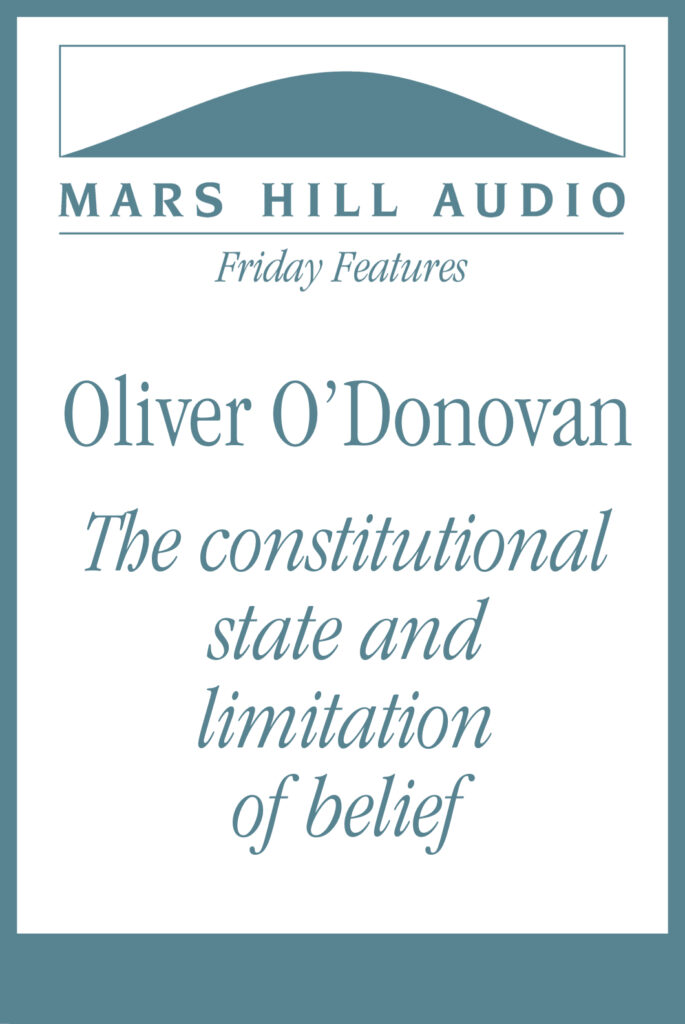
released 5/6/2022
In a 2006 lecture titled “The Constitutional State and Limitation of Belief,” moral philosopher Oliver O’Donovan examines the conventional assumption within liberal democracies that religious beliefs must be subject to certain restraints upon their public expression. The rules of play required for all who wish to participate in public life insist that universal visions must be treated by analogy with private interests. But is such a limitation morally intelligible? A recording of the entire lecture is presented in this Friday Feature. The lecture was given in 2006 at an event sponsored by Yale Divinity School and Yale Divinity School’s Center for Faith & Culture, who have graciously granted us permission to share it with our listeners.
(68 minutes)
PREVIEW